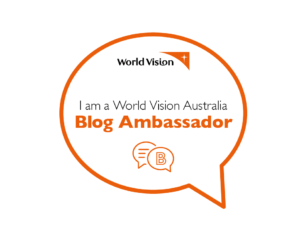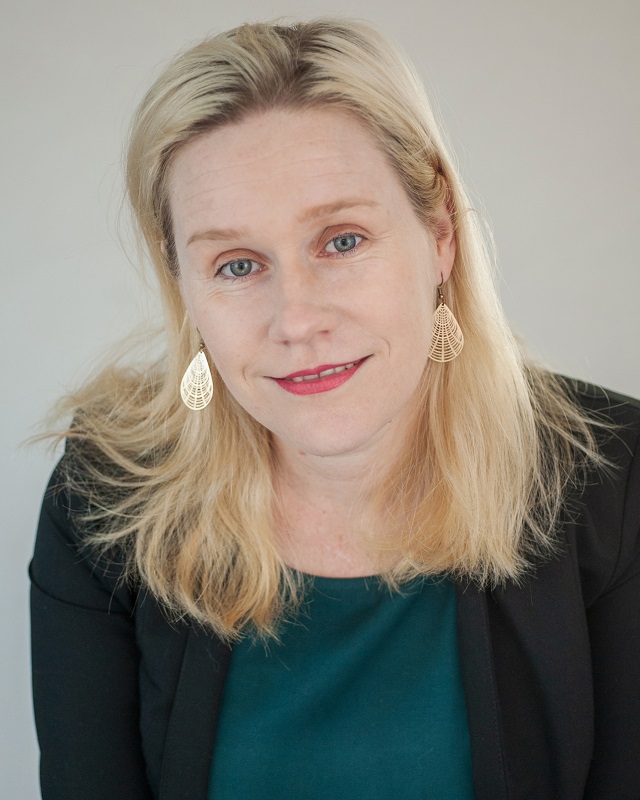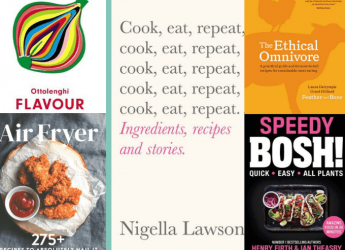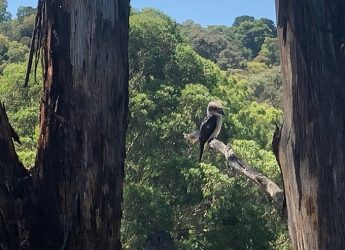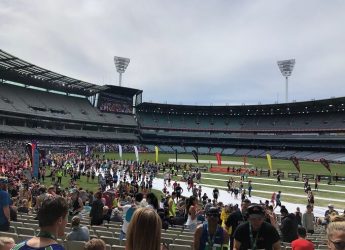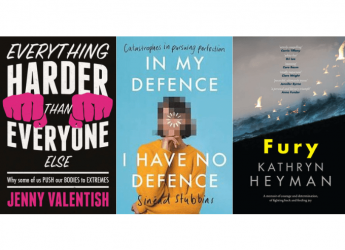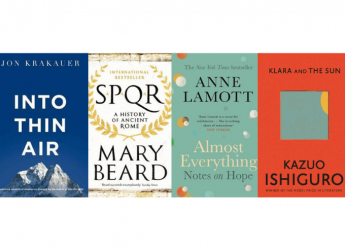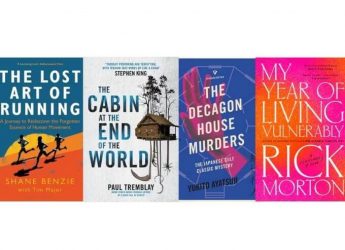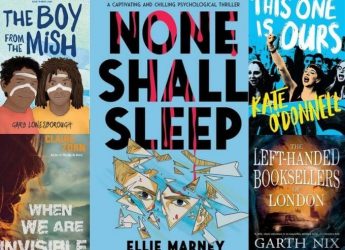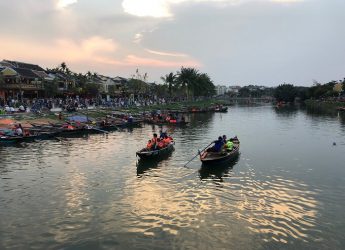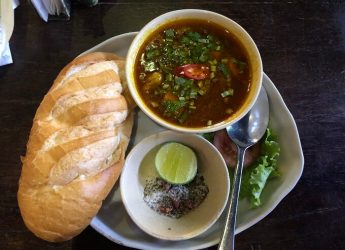October is release month for The Mapmaker Chronicles: Race to the End of the World, the first book in The Mapmaker Chronicle series, written by A.L. Tait. The adventure series is terrific for children ages 9+ and is available for purchase at Booktopia and other bookshops around the nation.
Allison found the time to answer some questions about writing, getting started, how she fits it into her busy schedule and more. See below – and enjoy!
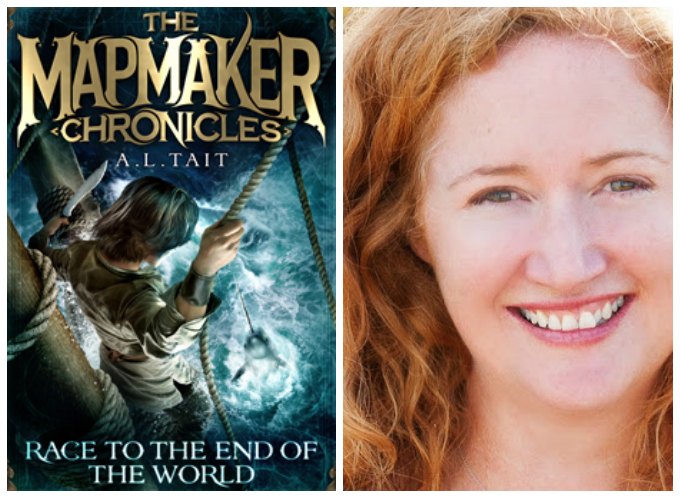
1) How much of a crossover is there of skills from your work as a non-fiction writer/freelancer to an author of fiction?
Hmmm. That’s an interesting question. I think when you’ve been writing professionally as long as I have – 20+ years – you learn a lot about the basics of writing accessible sentences, getting across complex ideas as simply as possible, and developing your own voice. That said, much of what you write as a features writer or author of non-fic books involves other people – other people’s comments, other people’s stories, other people’s insights. When you write fiction, finding all of those things within yourself and trusting your own voice can take a while! I think that writing features has developed in me a good ear for character and story – when I interview someone I always know the exact moment that they give me the quote on which I’ll hang the whole article. As my fiction writing has developed, I’ve learned to listen for that little ‘zing’ within my own words.
2) If someone wants to take their first ‘baby steps’ into creative writing, do you have any tips or suggestions as to what might be the best way they could go about it?
This is such a difficult question and I think that’s why the most common answer that authors give to this is to ‘read widely’ and ‘write lots’ – neither of which I found particularly helpful when I was starting out. But the truth is that you learn a lot about writing by reading. My suggestion would be to begin by trying to write what you like reading. If you like romance novels or crime novels, try writing one. If you’re reading lots of books to your kids, try writing one. But be prepared to discover that you’re not very good at it.
I started out writing romance fiction because I thought it ‘made sense’ – I’d been working in women’s magazines for years and I thought that my understanding of voice, and target demographics and, let’s face it, orgasms (hello CLEO) would make it easy for me. It didn’t. I won a mentor in a competition and she kept pushing me towards a broader story – by the end of our six weeks together, she told me quite bluntly that I wasn’t focussing enough on the romance and I needed to write something else. So I turned to women’s fiction and I wrote several as-yet (she says hopefully) unpublished manuscripts in that area before I had the idea for The Mapmaker Chronicles.
Which brings me to part two of the common advice: write lots. This I tend to agree with. You need to write a lot of words before you figure out how you write a novel – the way I write a novel and the way you write a novel may be completely different. There are some great courses around to help get you started, but, at the end of the day, it comes down to you and your computer and many, many hours together.
3) What kind of writer are you – do you sit at your computer until you hit a particular word count? Are you a plot planner or prefer to work through a story more intuitively?
I am a writer who is also a mother and a working freelancer, so I wedge my fiction in around everything else. Over many years (my oldest son is now 10), I have taught myself to write in whatever windows of time are available to me – even if they are in the middle of the night. I don’t have time to indulge in waiting for my Muse to turn up. I assume she is caught in traffic and I start without her. I find that if I do that, she shows up at some point…
As for plotting, with The Mapmaker Chronicles I did more of that than I’ve ever done in my life – which is still to say, not much. I usually like to start with an idea and see where it takes me, but when you’re planning a series, you need to be able to show a publisher that you know how it will end, so in this instance, I wrote a short outline for each novel in the trilogy. But mostly, I have a premise, a character and … hope.
4) What are some myths about writing a book – any kind – that you’d be happy to ‘bust’?
There is no perfect time to write a book. There is no perfect place to write a book. But there is such a thing as too much research. If you’re waiting for the studio with the roses around the door, or for the kids to get older, or until you know the history of Tudor England inside and out, you will never, ever write a novel. Do it now. Fill in the gaps in your knowledge after you have that first draft down.
Also, your first draft is not your book. It doesn’t need to be perfect – it will never be perfect. So write and write until you get to the end, then fix it. That’s what first drafts are for.
5) Here’s a scenario: a writer has finished the first draft of her novel. She’s ecstatic, but also is scratching her head, thinking, “Goodness, what do I do next?” What would your suggestion be?
Firstly, I suggest a small celebration – you are amazing!
Then I think you should put the manuscript in a drawer and go and do something else for a while – even if it’s to begin writing another book. When you haven’t looked at Manuscript 1 for at least three months, pull it out. You’ll be able to see much more clearly just what you need to do next.
6) How is writing for children different than writing for adults?
When I set out to write The Mapmaker Chronicles, I had never written for children before and I’m not sure that I approached it any differently. The story and the characters drive the language and the writing. I think when I write anything that I have a reader in mind – it’s innate after so many years. In the case of The Mapmaker Chronicles, that reader was personified in my 10-year-old son. So I wrote the story for him, with age-appropriate themes and language, but I still used what I considered to be the right word for the job. I never had any sense that I was writing ‘young’. I just wrote the story as it felt like it needed to be written.
*
Thank you very much, Allison! An extra note from me, her website is also a great resource for writers, with lots of advice, as is her podcast with Valerie Khoo ‘So you want to be a writer‘. I’m looking forward to getting my hands on a copy of the book – I know two children (one boy, especially) who it would be perfect for!



